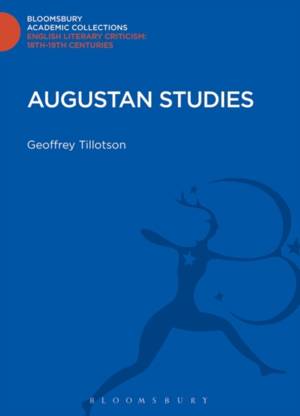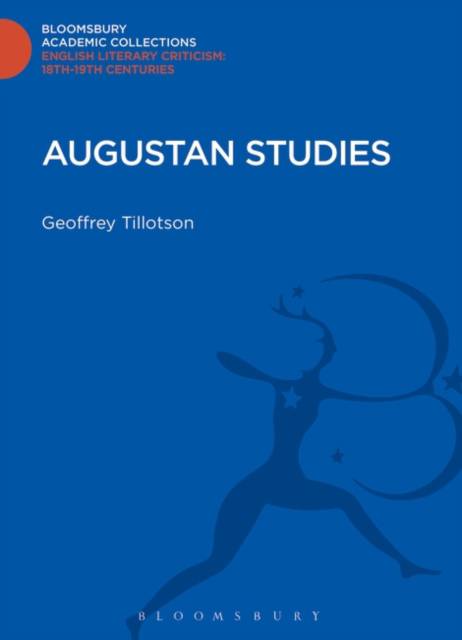
Bedankt voor het vertrouwen het afgelopen jaar! Om jou te bedanken bieden we GRATIS verzending (in België) aan op alles gedurende de hele maand januari.
- Afhalen na 1 uur in een winkel met voorraad
- In januari gratis thuislevering in België
- Ruim aanbod met 7 miljoen producten
Bedankt voor het vertrouwen het afgelopen jaar! Om jou te bedanken bieden we GRATIS verzending (in België) aan op alles gedurende de hele maand januari.
- Afhalen na 1 uur in een winkel met voorraad
- In januari gratis thuislevering in België
- Ruim aanbod met 7 miljoen producten
Zoeken
Omschrijving
It is still true that most readers of eighteenth-century poetry approach it by way of nineteenth-century poetry; they know what Wordsworth said about Pope before they read Pope. This means that when they read Pope and other eighteenth-century poets, they apply the wrong criteria. An eighteenth-century poet did not have to create the taste by which he was enjoyed to the same extent as a nineteenth-century poet was conscious of having to. The kinds were ready waiting for him, and, if the rules of poetic diction for the kinds of which he elected to write were properly complied with, the products were recognisable: epic, tragedy in verse, Pindaric, elegy, heroic and familiar epistle, pastoral, georgic, occasional verse, translation and imitation. This book, a collection of essays by Dr Tillotson, examines these types of eighteenth-century poetry with particular focus on poetic diction, as well as discussing works such as Pope's letters and Johnson's dictionary.
Specificaties
Betrokkenen
- Auteur(s):
- Uitgeverij:
Inhoud
- Aantal bladzijden:
- 266
- Taal:
- Engels
- Reeks:
Eigenschappen
- Productcode (EAN):
- 9781472507150
- Verschijningsdatum:
- 8/05/2014
- Uitvoering:
- Hardcover
- Formaat:
- Genaaid
- Afmetingen:
- 156 mm x 234 mm
- Gewicht:
- 557 g

Alleen bij Standaard Boekhandel
+ 644 punten op je klantenkaart van Standaard Boekhandel
Beoordelingen
We publiceren alleen reviews die voldoen aan de voorwaarden voor reviews. Bekijk onze voorwaarden voor reviews.









